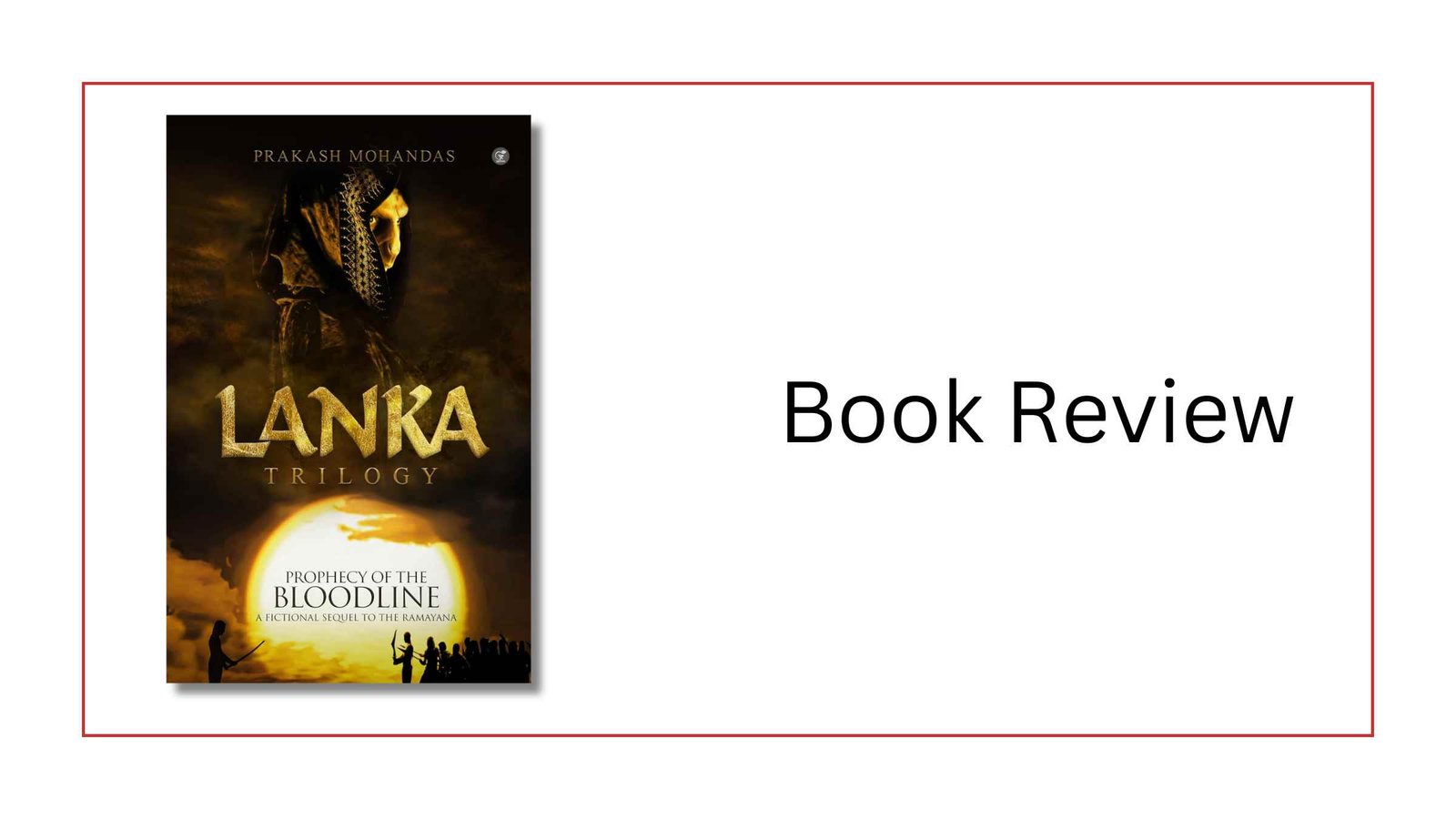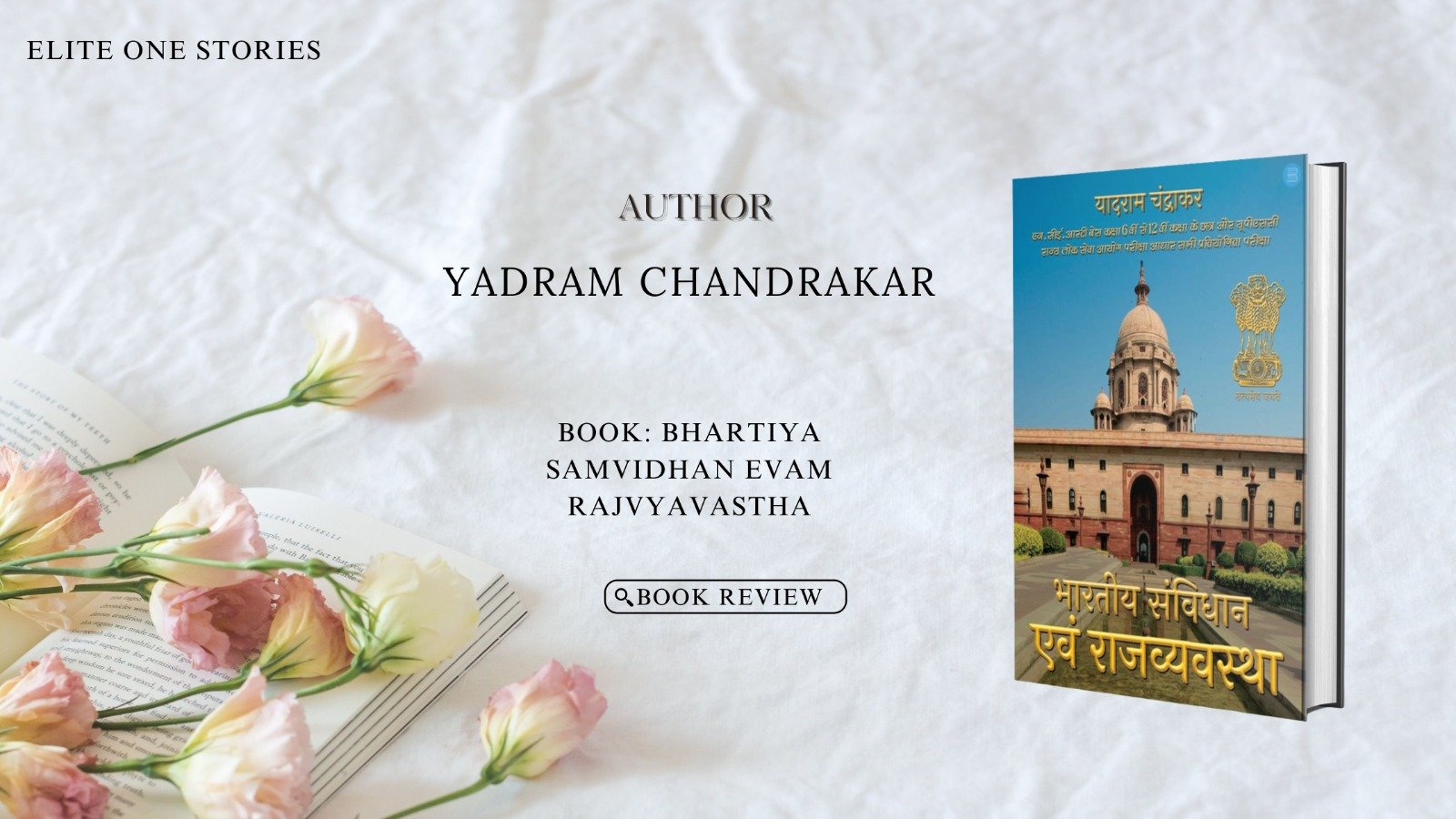What happens after the epic of the Ramayana concludes? In Lanka – The Prophecy of the Bloodline, Prakash Mohandas dares to ask that very question—and delivers a powerful, imaginative, and richly layered response. This bold novel is the first in a three-part fictional extrapolation that delves into the aftermath of one of India’s most enduring mythological tales. It’s not merely a retelling but a visionary extension—infused with fresh characters, political intrigue, ancient prophecies, and the ever-relevant struggle between good and evil.
The story picks up after the fall of Ravana, the feared and revered Rakshasa king who was vanquished by Lord Rama. As the dust of war settles, Ravana’s brother Vibhishana is made king of Lanka—a decision rooted in moral righteousness and divine will. Under his rule, the Lankans, a clan of Rakshasas, begin to rebuild with courage and a sense of justice. However, peace proves fragile. Enter Shurpanakha, Ravana’s sister, an often-overlooked character in traditional texts, now reinvented as a central force of darkness and deceit. Her ambition knows no bounds, and she soon overthrows Vibhishana, banishes the Lankans to the forest, and enslaves the rest under her dark regime—the Mayas.
What unfolds from here is a gripping tale of betrayal, power, prophecy, and resilience. Shurpanakha’s backstory is masterfully reimagined. Once dismissed as a footnote in mythology, she becomes the novel’s primary antagonist—a cunning, manipulative, and deeply complex figure. Mohandas’s portrayal of her is layered; she is not simply evil for evil’s sake. Her actions stem from desperation, pride, and a twisted sense of destiny. Her belief in the ancient prophecy drives her to pursue the royal bloodline with obsessive determination. She believes that by giving birth to a son of supreme lineage, she can cement her control over Lanka and bend fate to her will. It is this obsession that unravels her, revealing the true extent of her villainy and vulnerability.
On the other side of the conflict, we are introduced to Maveera, a fierce and noble leader of the banished Lankans. His character brings depth and emotional gravity to the narrative. Through Maveera, readers witness the pain of exile, the weight of responsibility, and the hope of redemption. The return of Vishwamitra, the ancient sage, provides the necessary spiritual anchor to the story. As the bearer of the prophecy, his presence adds urgency and gravity to the unfolding events. The prophecy itself—that one carrying the true royal Rakshasa bloodline will restore peace to Lanka—sets the stage for a powerful and suspenseful journey that is sure to develop further in the coming volumes.
What makes Lanka stand out is the ambitious scale and the nuanced world-building. Mohandas doesn’t rely on clichés or the comforts of existing mythology. Instead, he expands the universe of the Ramayana into new, uncharted territory. The political dynamics between the Mayas and the Lankans, the psychological makeup of characters like Shurpanakha, and the spiritual undertones brought in by sages and prophecies all combine to form a rich narrative landscape. This is mythological fiction at its finest—where reverence for tradition meets creative innovation.
The prose is cinematic in its pacing and style. Mohandas brings his artistic background as a dancer, actor, filmmaker, and musician into his writing. The narrative has a rhythmic quality—scenes unfold with choreographed intensity, battles feel visually striking, and emotional moments resonate with a melodic cadence. This lends the novel a unique voice—one that is dramatic yet poetic, fierce yet introspective. Every chapter pushes the reader further into a land where gods, demons, humans, and prophecies collide in mesmerizing harmony.
One of the book’s greatest strengths is its ability to remain accessible to a wide audience. While steeped in mythological roots, it does not alienate those unfamiliar with the Ramayana. Instead, it offers just enough context to intrigue newcomers while delivering layers of depth for those who know the epic well. The characters are relatable, their motivations timeless, and their challenges universal. It speaks to themes of legacy, power, destiny, and the never-ending tension between dharma and ambition.
Prakash Mohandas succeeds not only in reimagining a mythological aftermath but also in creating a compelling narrative that reflects modern concerns. The thirst for power, the manipulation of tradition for personal gain, the exile of the righteous, and the hope of reunification—these are as relevant today as they were in any ancient tale. Lanka – The Prophecy of the Bloodline is more than just a fantasy adventure; it’s a profound meditation on leadership, lineage, and the human desire to belong, to lead, and to rise.
As the first book in a trilogy, Lanka sets a high standard for what’s to come. It leaves readers hungry for more, eager to follow the threads of the prophecy, to see how the bloodline will unfold, and whether peace can truly be restored in a land scarred by ambition and war. Mohandas has crafted a tale that not only entertains but also challenges the reader to reflect on power, prophecy, and the price of legacy. It’s an exhilarating beginning to what promises to be an epic saga.



